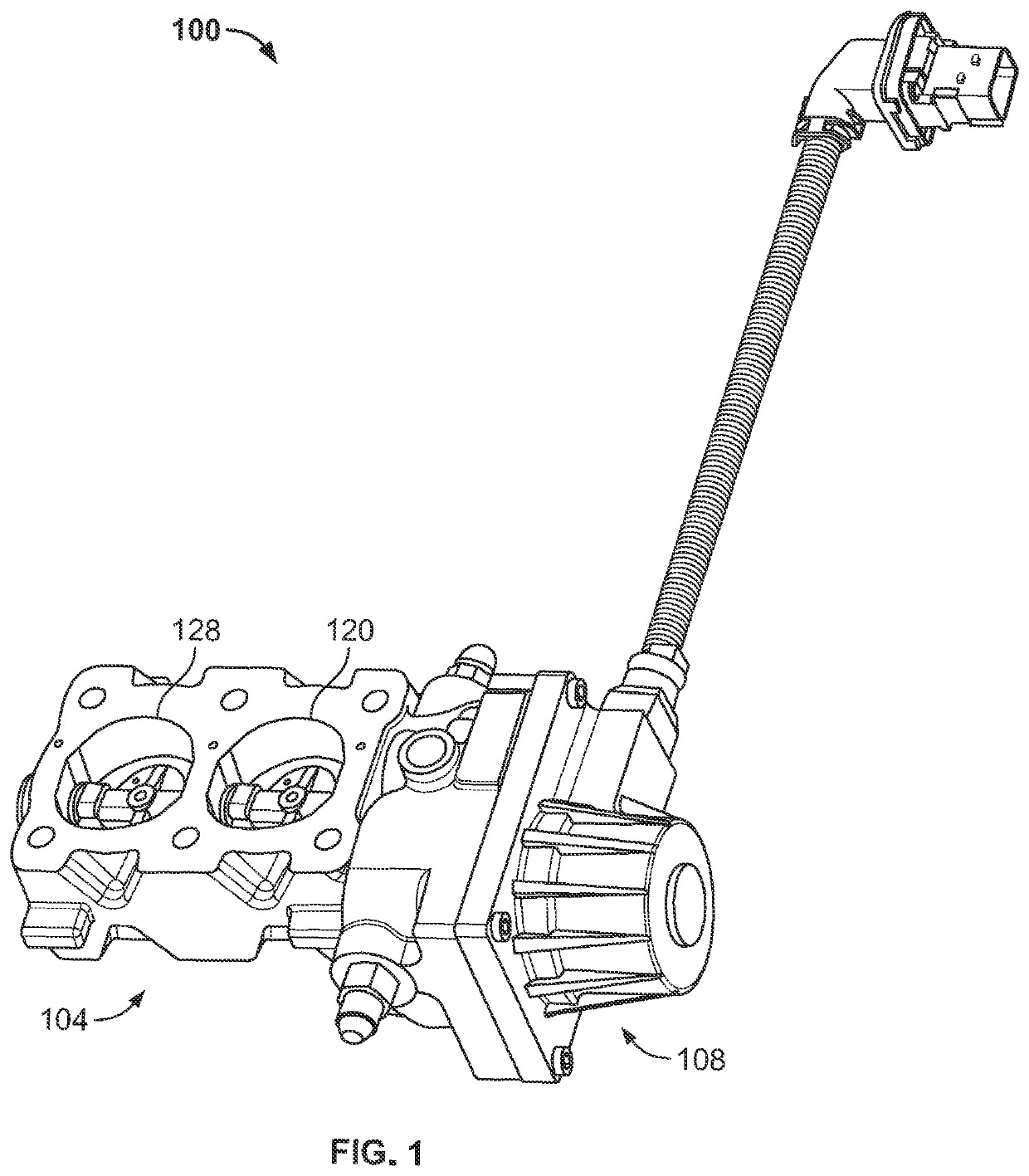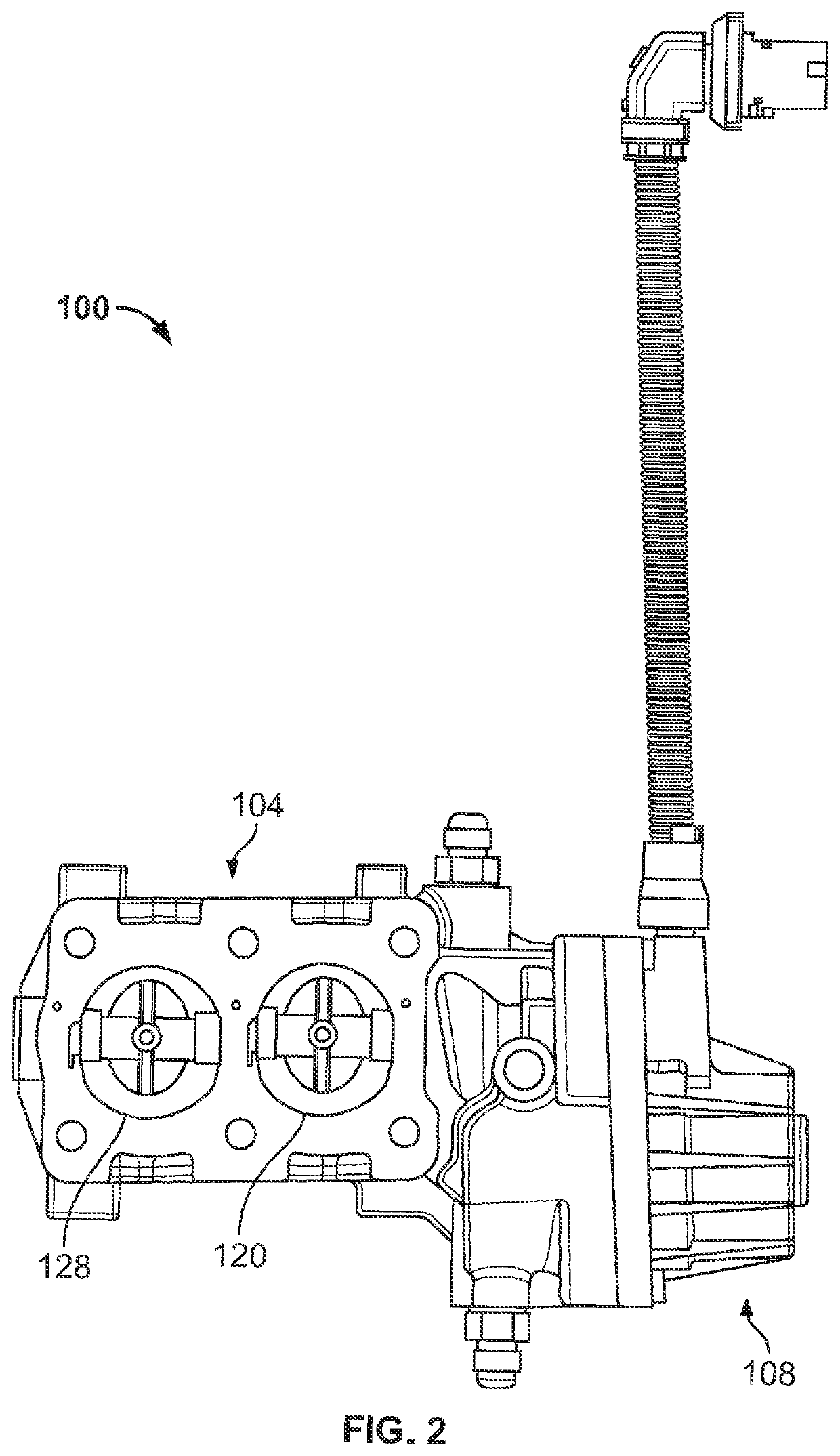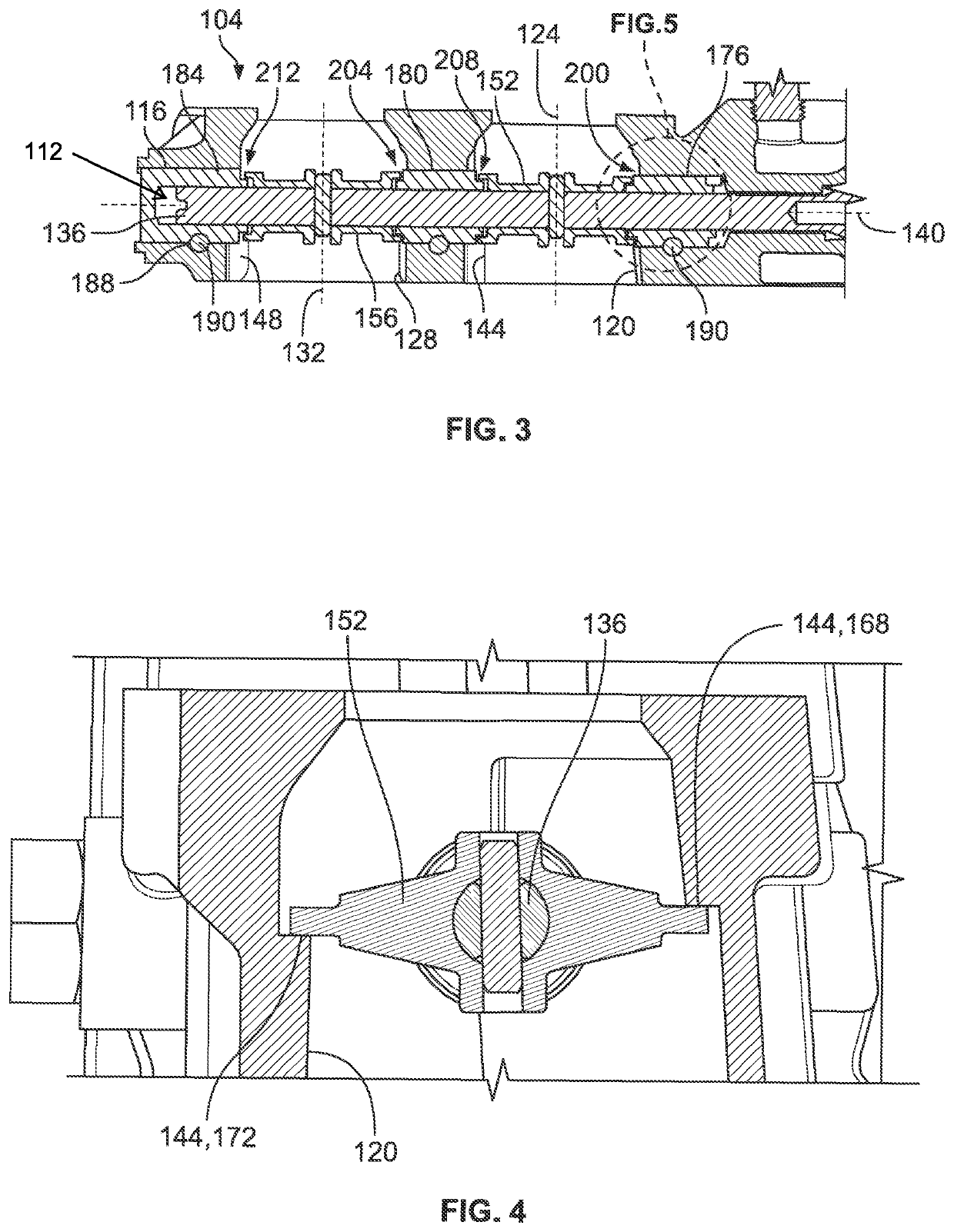Rotary control valve having minimized internal fluid leak rate when closed
a technology of internal fluid leakage rate and rotary control valve, which is applied in the direction of machines/engines, engine components, mechanical equipment, etc., can solve the problems of inability to use rotary valves for that given application, considerable leakage around the control element still occurs, etc., and achieves the effect of minimizing the internal leakage ra
- Summary
- Abstract
- Description
- Claims
- Application Information
AI Technical Summary
Benefits of technology
Problems solved by technology
Method used
Image
Examples
Embodiment Construction
[0028]The present disclosure is directed to a rotary control valve that minimizes, if not virtually eliminates, the fluid leakage that occurs in conventional rotary control valves when those rotary control valves are closed. The rotary control valve disclosed herein is intended to be utilized with a vehicle (e.g., a diesel vehicle, a commercial vehicle) to, for example, control exhaust fluid flow recirculation (e.g., in an engine in a diesel vehicle), such that the rotary control valve minimizes fluid leakage during exhaust fluid flow recirculation. Nonetheless, it will be appreciated that the rotary control valve can be utilized in other industries, including, for example, oil & gas, food & beverage, fluid control, etc.
[0029]FIGS. 1-5 illustrate one example of a rotary control valve 100 constructed in accordance with the principles of the present disclosure. The rotary control valve 100 generally includes a valve body 104, an actuator 108 that is coupled to the valve body 104 (e.g....
PUM
 Login to View More
Login to View More Abstract
Description
Claims
Application Information
 Login to View More
Login to View More - R&D
- Intellectual Property
- Life Sciences
- Materials
- Tech Scout
- Unparalleled Data Quality
- Higher Quality Content
- 60% Fewer Hallucinations
Browse by: Latest US Patents, China's latest patents, Technical Efficacy Thesaurus, Application Domain, Technology Topic, Popular Technical Reports.
© 2025 PatSnap. All rights reserved.Legal|Privacy policy|Modern Slavery Act Transparency Statement|Sitemap|About US| Contact US: help@patsnap.com



